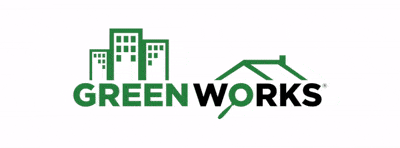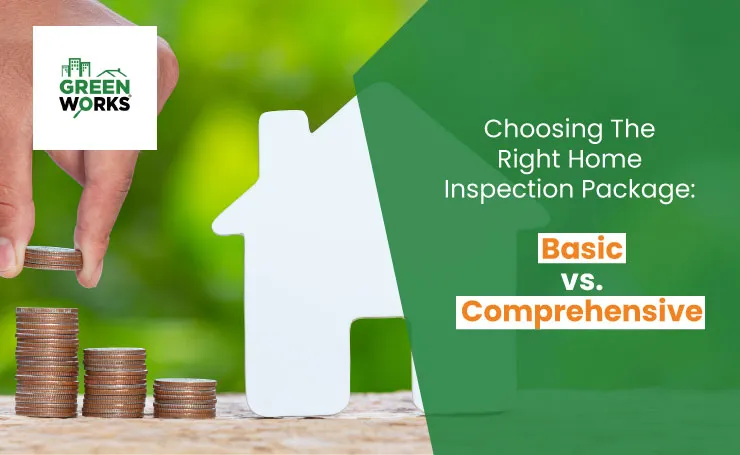Posts

Understanding the Contrast Between Structural Inspections and Home Inspections
Homeowners often get confused between structural inspections and home inspections.
Aren’t both of these the same? Can I schedule a structural inspection, and will it be covered?
Well, to say structural and home inspections are the same won’t be right, as they are different and serve different purposes.
If you’re confused about which one to schedule, this blog is for you.
In this blog, we will discuss Structural Inspections vs. Home Inspections. We’ll focus on their purpose, scope, and significance.
So, let’s start…
What Are Structural Inspections?
Structural inspections are comprehensive assessments that specifically focus on evaluating a building or structure’s foundational and load-bearing elements.
Qualified structural engineers often conduct these inspections, and they aim to ensure the integrity, stability, and safety of the property’s essential structural components.
This examination typically thoroughly analyzes the foundation, walls, columns, beams, roof framing, and other critical structural elements.
Structural inspections mainly aim to identify any issues, defects, or potential weaknesses that may compromise your building’s stability.
What Are Home Inspections?
Home inspections are comprehensive evaluations of a property’s overall condition. It encompasses various aspects beyond the structural elements. Even though these inspections are also conducted by qualified home inspectors and cover key components such as the electrical system, plumbing, heating, ventilation, air conditioning (HVAC), roofing, and more.
The primary objective of home inspections is to assess the property’s safety, functionality, and general well-being.
These inspections provide valuable insights into existing issues, potential maintenance needs, and safety concerns.
Usually, the findings are detailed in an inspection report, which is a valuable tool for making informed decisions about the property.
Unlike structural inspections focusing specifically on load-bearing components, home inspections offer a broader perspective, ensuring a comprehensive understanding of the property’s overall health.
Structural Inspections vs. Home Inspections: The Scope
Scope of Structural Inspections
The scope of Structural Inspections lies on the structure’s basic load-bearing elements and foundational aspects.
The skilled structural engineers conducting these assessments emphasize the structural integrity and stability of the building.
The inspection typically includes a detailed analysis of critical components such as the foundation, walls, columns, beams, and roof framing.
The goal is to identify any potential issues, defects, or weaknesses that could compromise the property’s structural soundness.
Scope of Home Inspections
Home inspections comprehensively evaluate a property’s overall condition, extending beyond the structural elements.
During these assessments, the home inspectors cover a wide range of components, including the electrical system, plumbing, HVAC, roofing, and more.
The primary objective is to assess the home’s safety, functionality, and general well-being.
These inspections provide valuable insights into existing issues, potential maintenance needs, and safety concerns. The resulting inspection report serves as a comprehensive guide for you, offering a detailed overview of the property’s overall health. This helps in informed decision-making about the investment.
Structural Inspections vs. Home Inspections: The Cost
Structural Inspection Cost
The cost of a structural inspection tends to be higher than a general home inspection due to its specific focus on critical load-bearing components.
Structural inspection costs can range from $500 to $1,000 or more, depending on factors such as the size and complexity of the structure.
Given the importance of assessing foundational and structural integrity, this cost is justified as it provides you with in-depth insights into the stability and safety of the building.
While it might feel like a major investment, if you want to maintain the long-term integrity of your property, you do need a structural inspection.
Home Inspection Cost
The cost of a home inspection can vary based on various factors like the size, age, and location of the property, as well as additional services requested.
Home inspection costs typically range from $300 to $500 on average. Again, cater to this expense as an investment, as a thorough home inspection can uncover potential issues, safety concerns, and necessary repairs, potentially saving you money in the long run.
While the upfront cost may vary, the insights gained from a professional home inspection are invaluable in making informed decisions about the property.
Structural Inspections vs. Home Inspections: The Timing
Timing of Structural Inspection
Structural inspections are typically recommended in specific circumstances or when you start being specifically concerned about a property’s structural integrity.
There’s no specific time to conduct a structural inspection, meaning you can schedule one at any point in your homeownership. But when visible signs of structural issues arise, this inspection becomes necessary. Signs of structural issues include:
- Cracks in walls
- Cracks in the foundation
- Uneven floors
Structural inspections may also be advisable for certain property types, such as older buildings or those with a history of structural concerns.
Additionally, structural inspections are essential during major renovations or before purchasing a property known to have potential structural challenges. The timing is more situational, depending on the need for a focused evaluation of the foundational elements.
Timing of Home Inspection
When buying a house, a home inspection should be one of your standard practices during the process. Usually, you need to schedule once the offer has been accepted but before the finalization of the sale.
This timing allows you to gain comprehensive insights into the property’s condition, helping you make informed decisions about the purchase.
Moreover, home inspections are crucial during the due diligence period, allowing you to identify any existing issues, safety concerns, or necessary repairs before closing the deal.
You might think home inspections are only associated with real estate transactions, but it’s not true. Homeowners may also opt for periodic inspections to assess the overall health of their property or when planning significant renovations.
Conclusion
In conclusion, understanding the difference between structural and home inspections is important to understand your property’s complexities.
While both inspections contribute to the required insights, their scopes, purposes, and professional focuses differ significantly.
Structural inspections, led by qualified engineers, focus on foundational elements and load-bearing components. They are crucial for maintaining a building’s stability.
In contrast, certified inspectors conduct home inspections, providing an overview of the property’s overall condition and covering various systems and components.
Recognizing these differences empowers you to choose the right type of inspection based on your specific needs. Also, ensuring a thorough understanding of a property’s structural integrity and overall well-being.
Choose peace of mind with Greenworks Inspections! Schedule today for a thorough property assessment. Contact us today for a better approach to inspections!



